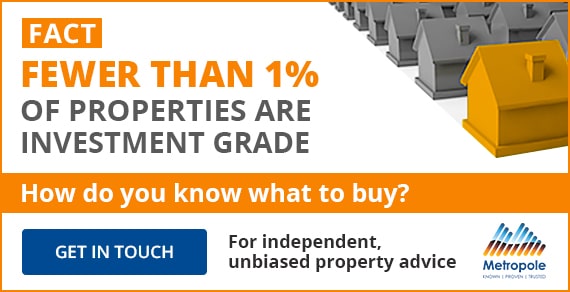Have you thought about investing in commercial property?
You’re not alone — faced with the prospect of more moderate returns from their residential property investments, many investors are considering this as an alternative.
By this, I mean offices, shops or warehouses.
In today’s podcast, I’ll be exploring the benefits of investing in commercial property, as well as some of the negatives.
Benefits of commercial property
There are of course many benefits from investing in commercial property
- Strong returns — Over the years commercial property has provided strong returns as a combination of capital gain and income.
- Stability of income — One of the important features of commercial property is returns are generally high and more secure. Returns for property fluctuate considerably less than returns on shares.
- Low risk — There is less volatility in the value of commercial property than in shares — if you own the right property.
- Exposure to different sectors of the economy — Retail and industrial properties have a direct relationship to the general state of the economy. Retail property depends upon consumer spending.
- Tax benefits — Commercial properties provide generous tax benefits with substantial depreciation allowances. Some buildings also attract building allowances, where a portion of the structural cost can be offset against the assessable income.
- Hedge against inflation — The value of commercial property and rentals of commercial properties have outpaced inflation over the long period.
- Investment control — As the owner of commercial property, you have a significant degree of control over your investment. You can choose to do improve your return through renovations, upgrading, and change of the use of the property, or you may amend the terms of the lease or the type of tenant you have and you always have the option of further development of the property or dispose of it.
- Leverage — Just as with residential properties it is possible to leverage your returns by borrowing up to 70% of the value of commercial property.
- Adding value — Just as investors in residential property are able to add value by buying a run-down property and renovating or redeveloping it, there are opportunities in commercial property to add value. In particular, if you can increase the rental income from your property this will directly reflect on the valuation of the property.
Ways you can add value to your commercial property investment include:
-
- Renovating
- Upgrading
- Subdividing or enlarging the block
- Improving the appearance of the property
- Obtaining permission for redevelopment
- Renegotiating the lease
- Changing its use for example to residential
- Renovating
The negatives of commercial property
Some of the disadvantages of investing in commercial properties include:
- Lack of liquidity — Selling a commercial property can take several months — often longer than it takes to sell a well-located residential property.
- Lack of pricing information — Compared to residential property there is little pricing information available for investors in commercial property. It is, therefore, more difficult to know the value of your particular property. You may able to get some information from the Property Council of Australia or from the following websites
- https://www.commercialrealestate.com.au/or
- http://www.realcommercial.com.au
- Scarcity of other information — If you are interested in share or in residential property, there are many blogs, magazines, newspapers, and websites that will help keep you informed and make you a better-educated investor. There are very few information resources for people interested in commercial real estate. You will find some articles in the Australian Financial Review and in the reports produced by some of the larger commercial property agencies.
- Higher costs — The entry level to purchase a commercial property is usually higher than that for residential. Partly because the price of a good commercial investment is substantial and partly because you require a larger deposit as banks won't lend you as high a proportion of your property compared to residential real estate
- Ongoing management — Direct property investment in commercial properties can require your ongoing management but usually requires less management than similarly priced residential properties.
Links and Resources:
Metropole Property Strategists
Metropole’s Strategic Property Plan – to help both beginning and experienced investors
Commercial Property Investment Guide
Ahmad Imam - Metropole Properties Sydney
Some of our favourite quotes from the show:
“My mistake was doing it a bit too early because I didn’t recognize at the time that while I got good cash flow, I didn’t get much capital growth.” –Michael Yardney
“As a commercial investor you need to come up with more equity, you need more cash in your stash to get going.” –Michael Yardney
“In general, commercial investors are looking for the security of the lease.” –Michael Yardney
PLEASE LEAVE US A REVIEW
Reviews are hugely important to me because they help new people discover this podcast. If you enjoyed listening to this episode, please leave a review on iTunes - it's your way of passing the message forward to others and saying thank you to me. Here's how
Subscribe & don’t miss a single episode of Michael Yardney’s podcast
Hear Michael & a select panel of guest experts discuss property investment, success & money related topics. Subscribe now, whether you're on an Apple or Android handset.
Need help listening to Michael Yardney’s podcast from your phone or tablet?
We have created easy to follow instructions for you whether you're on iPhone / iPad or an Android device.
Prefer to subscribe via email?
Join Michael Yardney's inner circle of daily subscribers and get into the head of Australia's best property investment advisor and a wide team of leading property researchers and commentators.

![[Podcast] All you need to know about investing in commercial property](https://cdn.propertyupdate.com.au/wp-content/uploads/2019/06/MY-podcast-98-Commercial-Watermark.jpg)
















